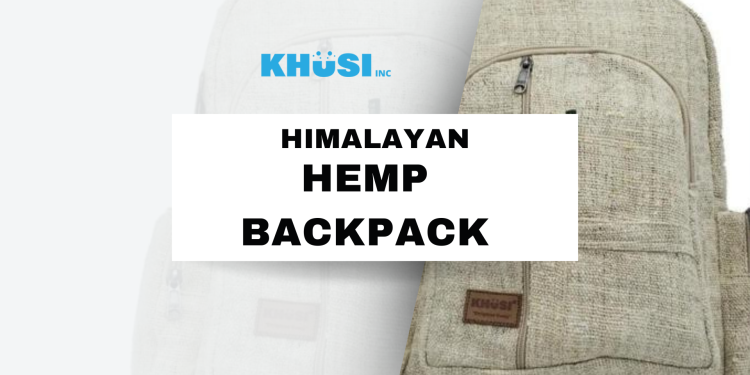The need to identify workable alternatives to plastic pollution is only going to grow. Hemp has provided far more than just leisure for generations; its adaptable fibers have helped communities all around the world by being used in textiles, building materials, and other purposes.
However, hemp has been hampered in recent decades by unfavorable public attitudes, their connection to hippie culture and restrictive laws. The emphasis now is on choosing solutions that are more environmentally friendly. Plastics are a major global trash problem, so there is an urgent need to find sustainable alternatives.
Hemp is coming back into the spotlight due to its renewable qualities and potential to curb plastic usage. Attributes like durability, decomposability and user-friendliness make handcrafted small hemp bags a practical alternative to single-use plastic ones. If supported properly, hemp goods could complement current offerings in retail and consumer markets.
Why Hemp Bags are Better
Himalayan hemp bags are incredibly strong and long-lasting, in contrast to plastic bags that tear quickly after just one usage. Hemp keeps its strength and flexibility for hundreds of uses, whilst other materials get tattered easily with repeated use. The bag’s malleable nature is maintained without weakness by the airy weave and gritty texture, which allow the material to soften with repeated washings and carryings.
Near the end of a hemp bag’s lifespan after carrying many loads, the fibers may start to fray and separate. But instead of ending up in a landfill, the material can safely decompose back into the earth. While plastic can endure forever in dumps, hemp returns to soil within months without leaving toxins behind. Elements like sunlight, moisture and microbes aid the natural breakdown so the bag reverts back into the soil it came from.
Nothing remains to contaminate the environment after breaking down into tiny particles, unlike plastic. The entire procedure recycles necessary elements back into rich soil to support the growth of new plants. From the point of manufacture to the end, hemp manages materials and trash wisely, whether it is used for carrying groceries or finishing its life cycle.
With a longer duration and more environmentally favorable end of life than plastic bags, it is unquestionably the superior, more environmentally responsible choice. Because of its natural process and long-lasting quality, choosing hemp has long-term benefits for both people and the environment.









